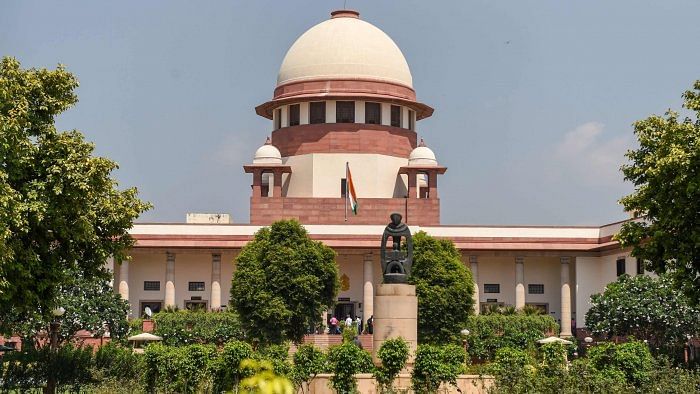
The Supreme Court on Thursday agreed to constitute a fresh five-judge bench to hear a batch of petitions questioning the validity of polygamy and 'nikah halala' practised by a section of Muslims.
Advocate Ashwini Kumar Upadhyay, who has filed the PIL in the matter, mentioned the matter before a bench presided over by Chief Justice D Y Chandrachud.
"We will form a bench," said the CJI as Upadhyay submitted out of the five judges, who heard the matter, two judges Justices Indira Banerjee and Hemant Gupta have retired.
The Supreme Court's Constitution bench had on August 30 issued notice to the Centre and others in the matter.
Separate petitions filed by a group of Muslim women and Upadhyay challenged the constitutional validity of polygamy and 'nikah halala'.
These cases were referred to the five-judge bench by a three-judge bench in March 2018.
Apart from the Union government, the court had sought a response from the National Commission for Women, National Commission for Minorities, Law Commission etc in the matter.
Upadhyay’s plea said that the injury caused to the women by the practice of 'triple talaq', polygamy, and 'nikah-halala' is violative of Articles 14, 15 and 21 of the Constitution and injurious to public order, morality, and health.
The plea sought a direction to declare Section 2 of the Muslim Personal Law (Shariat) Application Act, 1937, unconstitutional and violative of Articles 14, 15 and 21 of the Constitution, insofar as it seeks to recognise polygamy and 'nikah-halala'.
In August 2017, the top court held that the Muslim practice of 'triple talaq' is unconstitutional and struck it down by a 3:2 majority judgement.
In the 2017 verdict, while quashing the practice of 'triple talaq', the court kept open the issue of polygamy and 'nikah halala'.
The petitioners said once a Muslim woman is divorced, her husband is not permitted to take her back even if he had pronounced talaq under influence of any intoxicant unless his wife undergoes nikah-halala, which involves her marriage with another man, who subsequently divorces her so that her previous husband can re-marry her.
Polygamy, on the other hand, allows a Muslim man to have four wives.
